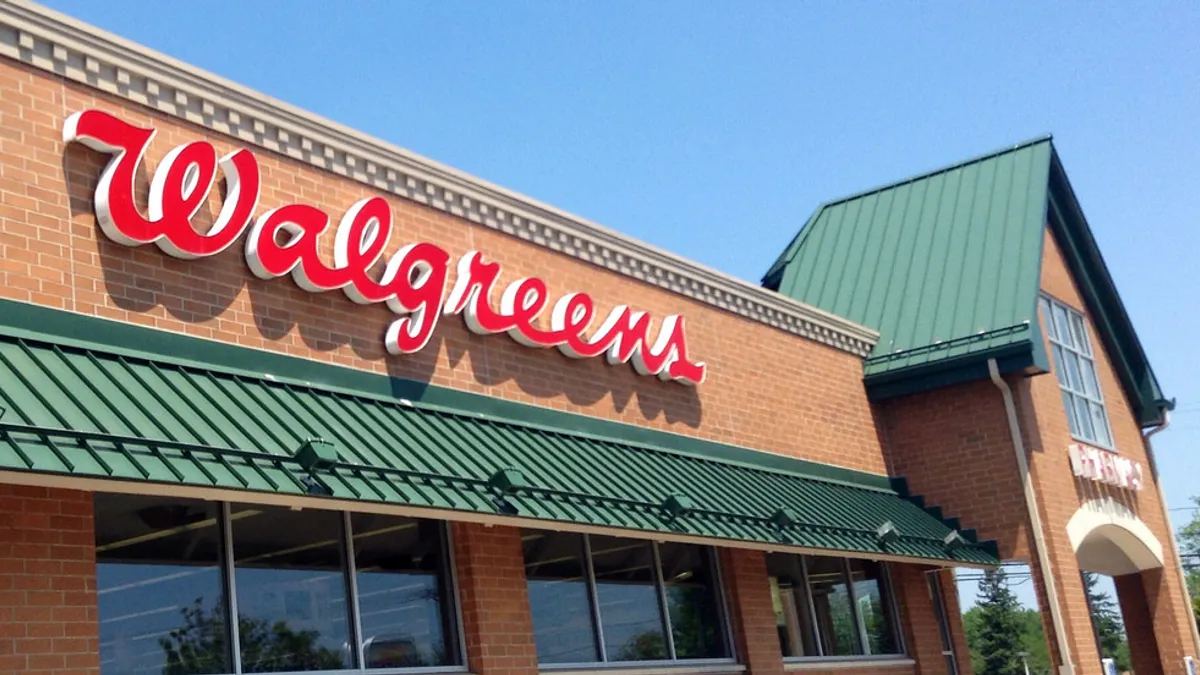Dive Brief:
- Walgreens and Alphabet's Verily inked a deal with broad goals that include improving health outcomes for those with chronic conditions while also lowering costs. Walgreens will be Verily's first-choice retail partner and also its first choice for pharmacy development and commercialization initiatives, according to a statement released Wednesday.
- The two will first tackle ways to ensure patients are remembering to take their medication by launching an adherence pilot project. And, to help Type 2 diabetics manage their condition, Walgreens and Verily will partner with Onduo, which provides tools, coaching and remote access to specialty doctors. The project will first enroll Walgreens employees.
- More broadly, the partnership will work together to develop technology, sensors and software to prevent, manage and diagnosis diseases. The end goal is to use those achievements at Walgreens retail locations across the country.
Dive Insight:
Medication adherence is no small problem in the U.S. When patients do not take their medication as prescribed — for whatever reason — it can cost the healthcare system between $100 and $300 billion annually, according to some reports.
More than half of U.S. adults have some chronic disease, according to the Centers for Disease Control and Prevention. And not staying on a regimen to treat that disease can lead to hospital visits and other indirect costs to the system, all for failing to take prescriptions as prescribed.
But Walgreens and Verily are not alone in their quest to improve rates of adherence. Other pharmacy benefit managers, including Express Scripts and CVS, have tried various initiatives.
Express Scripts offers customized messages on the caps of prescription pill bottles that remind patients if they are out of refills and need to call their provider. During the pilot program, Express Scripts found renewal rates increased by nearly 3% for those with messages on the caps. Express Scripts also uses predictive modeling through its ScreenRX program to determine who is more likely to become non-adherent and intervene in those cases.
Verily, the life sciences arm of Alphabet (which is Google's parent) has a number of healthcare projects in the works. Researchers said late last year they believe it's possible to build speech recognition technology practical for transcribing medical conversations. Verily is also one of the organizations participating on the Blue Button 2.0 efforts CMS launched to push development of apps using Medicare claims data.
For its part, Walgreens has been broadening its healthcare interests beyond retail footprints and pharmacy. The company recently announced a collaboration with Michigan-based McLaren Health Care to offer urgent and primary care services at some of its stores. Walgreens has also continued talks with Humana to deepen that partnership, including those two companies possibly taking equity stakes in each other.














